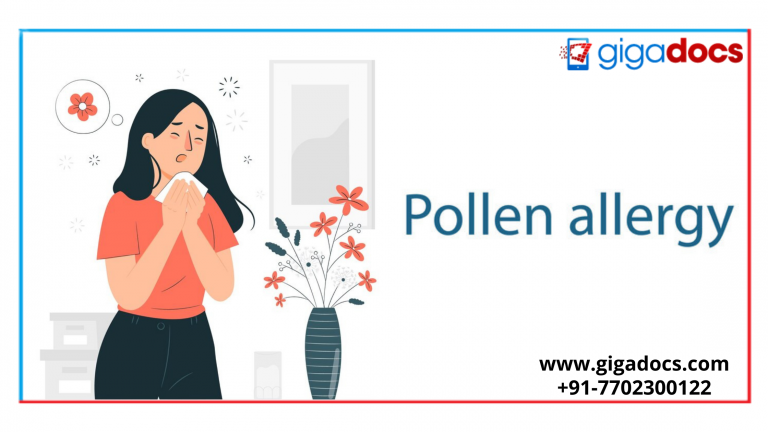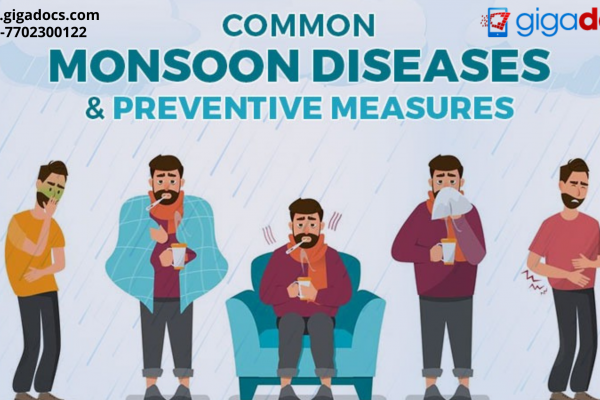When your immune system reacts to something that doesn’t bother other people, you have an allergic reaction. The most common allergens include dust mites, medications, insect stings, mold spores, seasonal pollen, and food like nuts, for instance. In this blog, let’s learn about pollen allergies, common during this change of seasons-
Pollen Allergies
Pollen is necessary for plant growth, but it can cause unpleasant symptoms in people allergic to it. These tiny pollens spread through the air during the growing season. When people with allergies inhale this pollen, their bodies recognize it as a threat, resulting in an allergic reaction.
Seasonal allergies, also known as “hay fever,” are caused by pollen released by trees, fungi, grasses into the atmosphere.
How does Pollen Allergy develop?
If a person inhales pollen, it causes water-soluble proteins, which are then released on the respiratory lining. Though these proteins usually are harmless, the body occasionally misidentifies them as harmful substances and subsequently produces and releases antibodies.
They are antibodies that bind to cells and lead them to release histamine, which causes pollen allergy symptoms.
Pollen allergy causes a variety of symptoms, including the following:
- eyes that are itchy or watery
- a scratchy throat and a runny nose
- sneezing
- wheezing due to a stuffy nose
Allergy Diagnosis
If a person is unsure about which pollen, they are allergic to, they can consult experts known as allergists and immunologists.
Pollen allergy tests conducted by allergists and immunologists determine which pollens may make an individual sick. This information is helpful, as treatments and remedies will only begin after identifying the exact allergy cause. Knowing which pollen types a person is allergic to can help them decide when to start taking medications and when to avoid outside environments. Some people who have a pollen allergy are also sensitive to certain foods.
Home Remedies for Allergies
The best natural allergy treatment is avoidance. Both doctors and natural healers will advise you to limit or avoid the allergens causing your allergic reaction. However, some allergens are difficult to avoid. In that case, you may want to consider a home allergy remedy to alleviate your allergies. Consider digitally discussing your allergy symptoms with a telehealth specialist before you start these remedies. Here are a few examples of the remedies:
- Keep the windows closed, especially when the pollen counts are high, and the weather is changing.
- Consider installing an air filter in your home or office. High-efficiency particulate air (HEPA) filters can be considered. By trapping airborne irritants such as dust and pollens, HEPA filters will reduce allergens.
- ● When your body is dehydrated, your immunity suffers. It causes nasal congestion, a runny nose, sneezing, and coughing. Remain hydrated even when you get up and while you sleep.
- Avoid going outside in the early morning when pollen counts are at their peak.
- Onion is a natural antihistamine that aids in the reduction of allergic symptoms. It can also be used as a bronchodilator to help open up congested airways.
- Citrus fruits are high in vitamin C, antioxidants, minerals, and vitamins. The sun becomes more intense with each passing day during the spring season. It dehydrates and weakens our bodies. Citrus fruits will give you energy and make you feel refreshed. They also help boost your immunity to combat the symptoms of seasonal change.
- At least once a week, wash bedding in hot, soapy water.
- Do not dry out laundry outside because pollen can adhere to sheets and towels.
- Quercetin is abundant in green vegetables such as spinach, broccoli, and spring onions. These leafy vegetables are also anti-inflammatory and antioxidant.
- To limit pollen exposure, change your clothes every time you come inside from being outside.
- Herbal teas may have anti-inflammatory properties, which may help to alleviate allergy symptoms.
- Taking a bath or shower each night before bed to remove pollen buildup from the skin and hair helps to keep allergies at bay.
Speaking to a Doctor for Allergies with Gigadocs
Telemedicine has the potential to transform current allergy care models. If you have severe seasonal allergies, use the Gigadocs app to connect with a telemedicine expert. They may advise you to have skin or blood tests to determine which allergens are causing your symptoms. Testing can help you figure out what steps you need to take to avoid your specific triggers and which treatments are most likely to work for you.
Telemedicine is effective for children with asthma, and parents appreciate the convenience. Telemedicine provides high-level care without the need for long drives – especially for those who live in areas without a local allergist – or long waits at the doctor’s chamber.
Gigadocs improves access to care, get your allergy tests booked from the Gigadocs website, to book a digital appointment-
Reach us at:
- IOS App – apple.co/2W2iG4V
- Android App – bit.ly/33AQoRC
To know more e-mail, at info@gigadocs.com




